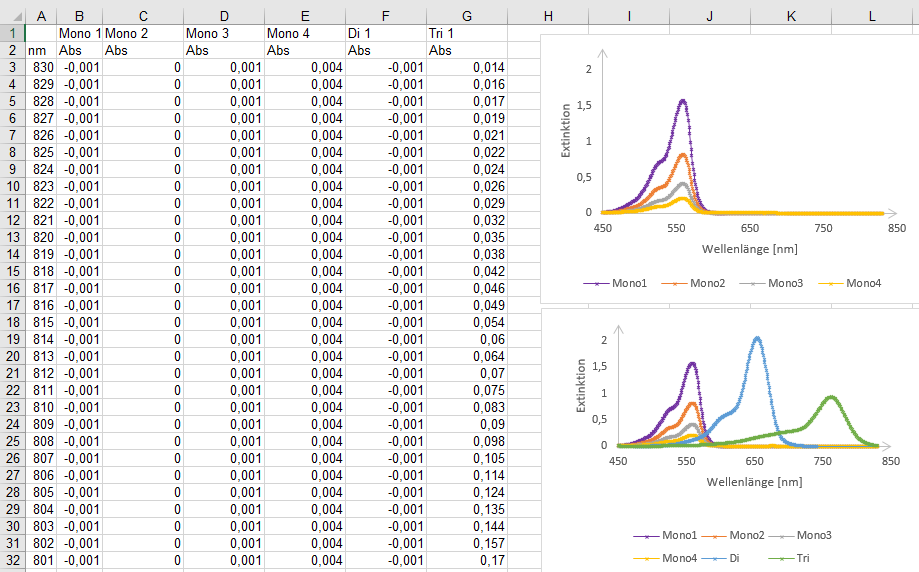1.4 Research data and good scientific practice
The DFG's "Guidelines for Safeguarding Good Research Practice" (often referred to as the DFG Code) provide a common basis for science by setting requirements for scientific excellence and collaborative scientific work. These also include requirements for working with research data. The DFG Code consists of a total of nineteen guidelines, whereby the first six guidelines deal with scientific principles, guidelines 7 to 17 with the actual research process and the last two guidelines with the non-compliance with good research practice.
Part of the explanations here are above all the guidelines that have a direct reference to research data. Guideline 7, "Cross-phase quality assurance", states with regard to research data:
"The origin of the data, organisms, materials and software used in the research process is disclosed and the reuse of data is clearly indicated; original sources are cited. The nature and the scope of research data generated during the research process are described. Research data are handled in accordance with the requirements of the relevant subject area. The source code of publicly available software must be persistent, citable and documented. Depending on the particular subject area, it is an essential part of quality assurance that results or findings can be replicated or confirmed by other researchers (for example with the aid of a detailed description of materials and methods)" (DFG 2019, 14 et seq., emphasis by the author).
Research data, including the associated research software, is considered to be of great value in the context of good scientific practice with regard to the quality assurance of research. Therefore, make sure that you document all work steps in such a way that other scientists have the possibility to check your results. This also includes citing external (data) sources that you may have used to extend your own data.
Guideline 10, "Legal and ethical frameworks, usage rights", points out, in addition to the responsible handling of research data, that the legal framework conditions of a research project also include "documented agreements on the rights of use to research data arising from it and research results". (DFG 2019, 16) For you as a researcher, this means obtaining these agreements and disclosing the rights of use in the metadata descriptions of the data for subsequent users.
In Guideline 12, "Documentation", the DFG requires that "all information relevant to the achievement of a research result [should be documented] as comprehensibly as is necessary and appropriate in the subject area concerned in order to be able to review and evaluate the result". (DFG 2019, 17 et seq.) In order to ensure this traceability, it is necessary, among other things, to provide information on research data used and on research data generated during the project period that is openly presented to third parties in an understandable form.
Guideline 13, "Providing public access to research results", calls for researchers to move towards open access, also with regard to the research data used. "In the interest of transparency and to enable research to be referred to and reused by others, whenever possible researchers make the research data and principal materials of which a publication is based available in recognised archives and repositories in accordance with the FAIR principles (Findable, Accessible, Interoperable, Reusable." (DFG 2019, 19) However, the DFG also explicitly points out that in some cases it may not be possible to publish data in open access (e.g., in the case of third-party patent rights). The following principle should therefore always apply with regard to Open Access: As open as possible, as restrictive as necessary.
The last guideline that relates to research data is Guideline 17, "Archiving". It states that, when research results are published, the research data on which the publication is based "are generally archived in an accessible and identifiable manner for a period of ten years at the institution where the data were produced or in cross-location repositories". (DFG 2019, 22) Find out about archiving options from the Research Data Unit at the [name of university] before you start a research project. Especially if it is a project with a very high volume of data, funds can be applied for to ensure the necessary storage infrastructure for archiving.
If you need more information on good scientific practice, it is worth visiting the DFG's newly created portal on the DFG Code. Additional information can be found on the website Ombudsman for Science, a "body established by the DFG to assist all scientists and scholars in Germany with questions and conflicts in the area of good scientific practice (GSP) or scientific integrity." Here you will find further literature that deals specifically with the handling of research data according to good scientific practice. At this address you will find references to international literature on so-called codes of conduct in science. This article deals with the question of cooperation and granting access to data after the completion of a third-party funded project, when the researchers may no longer be at the institution where they collected the data.



